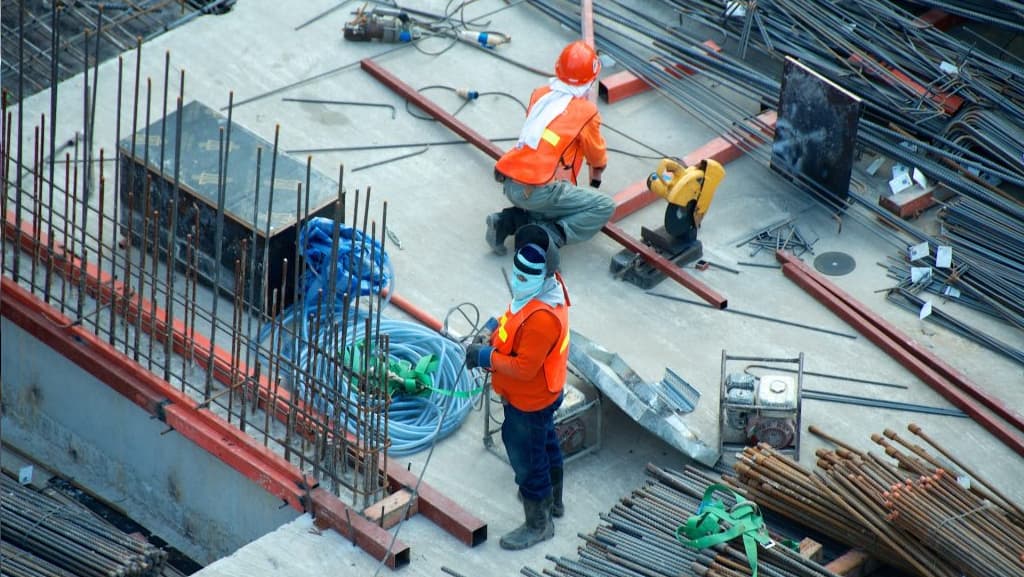
Comprehensive Contract Formation in UAE Construction Law: Ensuring Legal Certainty and Risk Management
Well-structured construction contracts clearly define obligations, allocate risks, and support smooth execution across the UAE’s fast-growing infrastructure sector.
Contract formation in UAE construction law is the legal process of creating a binding agreement between an employer and a contractor. With the UAE construction sector booming, driven by infrastructure, urban development, and investment projects, well-structured contracts are critical for risk allocation, regulatory compliance, and dispute prevention.
A properly drafted construction contract ensures that all parties understand their rights and obligations and that agreements are legally enforceable under UAE law. This article explains the process of contract formation, key contract components, types of agreements, pre-contract documents, compliance requirements, and dispute resolution mechanisms.
What is Contract Formation in Construction Law?
Contract formation in construction law is the process by which the employer (client) and contractor enter a legally enforceable agreement for construction work. It includes offer and acceptance, consideration, intention to create legal relations, capacity of parties, legality, and certainty of terms.
The process generally begins with tendering, negotiations, or pre-contract discussions and concludes with a formal contract outlining scope of work, payment terms, timelines, and duties. Standard forms like FIDIC contracts in UAE are frequently used to ensure fairness and enforceability.
What Are the Essential Elements of a Construction Contract?
The key elements of a valid construction contract include:
- Offer – Proposal by the contractor to perform construction work under specified terms.
- Acceptance – Employer agrees exactly to the offer, making the contract legally binding.
- Consideration – Something of value exchanged, usually payment in return for construction services.
- Intention to Create Legal Relations – Both parties must intend the contract to be binding.
- Capacity of Parties – Parties must be legally competent; contractors must be licensed.
- Free Consent – Consent must be voluntary, without coercion, misrepresentation, or fraud.
- Lawful Object – Purpose must comply with UAE building regulations and statutory laws.
- Certainty of Terms – Obligations, scope, quality standards, timeline, and penalties must be clear.
- Possibility of Performance – Obligations must be feasible physically and legally.
What Types of Construction Contracts Exist in the UAE?
Common construction contracts in UAE include:
- Lump-Sum / Fixed-Price Contract – Contractor completes the work for a fixed price; bears risk of overruns.
- Cost-Plus Contract – Employer reimburses actual costs plus an agreed fee; suitable for uncertain scopes.
- Design and Build Contract – Contractor handles design and construction, reducing disputes.
- Unit Rate Contract – Payment based on actual quantities; used in infrastructure projects.
- EPC / Management Contract – Contractor manages engineering, procurement, and construction for complex projects.
What Are Pre-Contract Documents in Construction Law?
Pre-contract documents are exchanged before the formal agreement and include:
- Tender / Bid – Contractor’s formal offer outlining scope, cost, and timeline.
- Letter of Intent (LoI) – Employer’s intent to contract; may allow preliminary work.
- Drawings and Specifications – Visual and technical guidance for project execution.
- Bill of Quantities (BoQ) – Lists material and labour quantities for cost estimation.
- Pre-Qualification Documents – Assess contractor’s experience, financial capacity, and technical expertise.
Why is Compliance Important in UAE Construction Contracts?
Compliance ensures contracts adhere to UAE building regulations, labour laws, safety standards, and environmental regulations. Non-compliance can result in fines, project delays, or unenforceable contracts.
How Are Disputes Settled in UAE Construction Law?
Dispute resolution in UAE construction contracts follows:
- Negotiation or Mediation – Parties resolve conflicts amicably.
- Arbitration – Governed by Federal Law No. 6 of 2018, binding and enforceable.
Clear dispute clauses help reduce delays and protect stakeholder interests.
What Are Common Payment Mechanisms?
Payments in UAE construction contracts are usually milestone-based or progress-based, certified by project engineers. Delayed payments can affect cash flow, but contractors may claim damages or interest under the Federal Civil Code. A transparent payment plan ensures project continuity and reduces disputes.
FAQ: Contract Formation in UAE Construction Law
Q1: What is contract formation in UAE construction law?
A: Contract formation in UAE construction law is the legal process of creating a binding agreement between an employer and a contractor, defining obligations, timelines, payments, and dispute resolution.
Q2: What are the essential elements of a construction contract?
A: The essential elements are offer, acceptance, consideration, intention to create legal relations, capacity, free consent, lawful object, certainty of terms, and possibility of performance.
Q3: What types of construction contracts exist in the UAE?
A: Common types include lump-sum/fixed-price, cost-plus, design and build, unit rate, and EPC/management contracts.
Q4: What are pre-contract documents in construction law?
A: Pre-contract documents include tenders/bids, letters of intent, drawings and specifications, bills of quantities, and pre-qualification documents.
Q5: Why is compliance important in UAE construction contracts?
A: Compliance ensures contracts follow UAE building regulations, labour laws, safety standards, and environmental rules, avoiding fines, delays, or unenforceable contracts.
Q6: How are disputes settled under UAE construction law?
A: Disputes are settled via negotiation, mediation, or arbitration, with arbitration governed by Federal Law No. 6 of 2018.
Q7: What are common payment mechanisms in UAE construction contracts?
A: Payments are milestone-based or progress-based, certified by engineers, with legal remedies available for delays under the Federal Civil Code.
For any enquiries please fill out this form, or contact info@thelawreporters.com Follow The Law Reporters on WhatsApp Channels